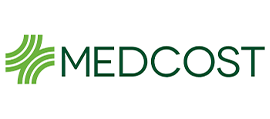At Banyan Treatment Centers Chicago, we believe that substance abuse disorders are expansive problems that require a comprehensive treatment plan for patients to find long-term sobriety and success in their recovery journeys. Because we want to help our patients heal completely, we offer various types of addiction therapies and programming, including our Chicago SMART Recovery group. Read on to learn how this program can benefit you or a loved one.

What Is SMART Recovery?
SMART Recovery is a global network of groups that follow the format of an open discussion and encourage participants to help resolve one another’s problems. But what does SMART Recovery stand for? SMART stands for self-management and recovery training.
Although participants are looking to others for support, with time, they come to discover their self-empowerment and self-reliance as they realize that they can find solutions. SMART Recovery groups are scientifically based and also expose participants to a variety of tools and techniques designed to progress them through the program’s four points:
- Building and maintaining motivation throughout addiction recovery
- Coping with urges and addiction cravings
- Learning to better manage thoughts, emotions, and behaviors
- Trying to live a more balanced lifestyle
What Are the Six Basic Elements of a Smart Recovery Meeting?
SMART Recovery (Self-Management and Recovery Training) is a support group and recovery program that focuses on self-empowerment and evidence-based strategies. The six basic elements of a SMART Recovery meeting are:
- Check-In:
- Participants share their experiences, challenges, and successes since the last meeting.
- This helps create a supportive atmosphere and allows individuals to connect with others in the group.
- Setting the Agenda:
- The meeting facilitator collaboratively establishes the meeting agenda based on the needs and interests of the participants.
- Topics may include specific tools and strategies from the SMART Recovery program.
- Presentations and Discussions:
- The meeting may include presentations or discussions on various topics related to addiction recovery.
- These discussions often revolve around applying SMART tools, problem-solving, and sharing practical strategies.
- Check-Out:
- Participants have an opportunity to reflect on the meeting, share any additional thoughts, and discuss plans for applying what they've learned.
- This promotes accountability and goal-setting for the period until the next meeting.
- Homework Review:
- SMART Recovery often involves participants engaging in specific exercises or tasks between meetings.
- Meetings may include a review of homework assignments, providing an opportunity for participants to share insights and challenges.
- Use of the SMART Toolbox:
- The SMART Recovery program provides a toolbox of evidence-based tools and techniques.
- Meetings focus on how to use these tools, which include aspects of cognitive-behavioral therapy, motivational enhancement, and rational emotive behavior therapy.
These elements create a structured and collaborative environment where individuals in recovery can share their experiences, learn practical strategies, and receive support from their peers. SMART Recovery is known for its emphasis on self-empowerment and the application of specific tools to address addictive behaviors and promote lasting recovery.
The Benefits of Our SMART Recovery Program
Early recovery from substance abuse is a vulnerable time for many, and the possibility of relapse is often high. A typical meeting can provide a much-needed level of support as recovering addicts adapt to lifestyles that are conducive to their newfound sobriety.
While friends and family may be there to support clients at our Chicago addiction treatment center, these people likely do not know what their loved one is going through and are unable to offer the kind of understanding that a person in recovery needs. A SMART Recovery group offers peer support to individuals undergoing drug or alcohol addiction treatment who are all struggling with similar problems.
Together the group will work through their issues. This type of setup creates a strong sense of community that people in recovery can turn to during times of vulnerability.
Along with peer support, the benefits of SMART Recovery for addiction include:
- Initiating or pushing forward progress
- Increasing self-awareness
- Creating more self-control
- Helping people take responsibility for their actions and behaviors
- Reducing the risk of relapse
SMART Recovery vs. AA
SMART Recovery and AA are two different approaches to treating addiction. Each aims to help people recover from addiction, but there are some notable differences between them. The main difference between SMART Recovery and AA is their approach to recovery. AA is based on the 12-step program, which involves admitting powerlessness over addiction, surrendering to a higher power, and attending meetings. SMART Recovery, on the other hand, is based on the principles of cognitive-behavioral therapy and emphasizes self-reliance, self-management, and personal responsibility.
Another difference between SMART Recovery and AA is the role of spirituality in the recovery process. While AA is often seen as a spiritual program that requires belief in a higher power, SMART Recovery does not require any spiritual beliefs or practices. Instead, it focuses on developing self-reliance, self-management, and personal responsibility through cognitive-behavioral therapy techniques.
Finally, the structure of the two programs also differs. AA meetings are typically led by volunteers who have completed the 12-step program themselves. These meetings follow a set format, including the sharing of personal stories and readings from AA literature. SMART Recovery meetings, on the other hand, are facilitated by trained professionals who use evidence-based techniques such as cognitive-behavioral therapy and motivational interviewing to help participants develop the skills and strategies needed to overcome addiction. SMART Recovery meetings also offer a variety of online resources and tools, including an online forum and a 24/7 chat room, which can be accessed from anywhere with an internet connection.
How Our SMART Recovery Meetings in Chicago Can Help
As there are several benefits of this program, we have adapted our SMART Recovery program in Chicago and incorporated these group meetings into all levels of addiction treatment. These programs allow our patients to interact in a safe, nonjudgmental environment.
Because treatment and early recovery come with many new challenges and problems, our Chicago SMART Recovery meetings allow our patients to try to work through these issues on their own instead of solely relying on staff members. This program also helps create a sense of community within their facility that patients can turn to long after formal treatment has concluded and they enter the rehab alumni program.
Furthermore, because of the pandemic, our Chicago drug rehab adjusted its services to ensure that clients can receive care no matter where they are. As part of our telehealth services for addiction, we’re also now offering SMART Recovery virtual meetings.
Our Zoom meetings allow clients to receive treatment remotely to ensure they don’t lose their momentum. It can be difficult to pick up where you started when there is a break in treatment, and the risk of relapse during breaks is high.
Especially considering the rise in drug use during quarantine, our Banyan rehab locations wanted to make sure that our clients could receive ongoing treatment no matter what. Through SMART Recovery, as well as our other programs at our facility, patients will gain a variety of new skills and tools that they can apply to their sobriety journey and increase their chances of creating a happier, healthier, and substance-free future.
For more information about our Chicago SMART Recovery meetings or other Illinois addiction treatment programs, contact Banyan today.
Related Reading:
How Long Do Edibles Stay In Your System?
Other Treatment Options
Most Insurance Plans Accepted
At Banyan Chicago our goal is to make sure that anyone who needs treatment from drug and alcohol addiction are able to get the help needed to assist them on the road to recovery. If you don't have insurance contact us to inquire about alternate methods regarding treatment for yourself or a loved one.














